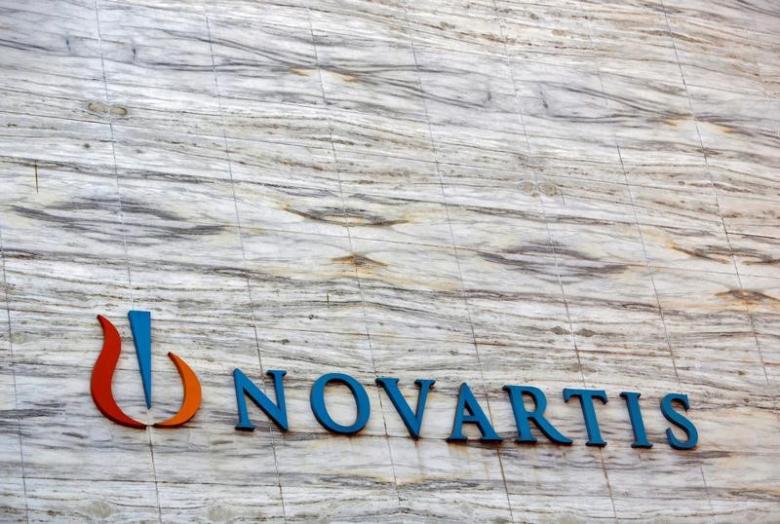Novartis eye drug works at less frequent dosing than rival's
Novartis eye drug RTH258 works as well as a rival product from Regeneron and at less frequent dosing in clinical trials, the Swiss drugmaker said on Tuesday, boosting its shares.
The drug, whose generic name is brolucizumab, aims to treat neovascular age-related macular degeneration (nAMD), the leading cause of severe vision loss and blindness in people over the age of 65 in North America, Europe, Australia and Asia.
Head-to-head late-stage trials showed RTH258 worked as well as Regeneron's Eylea, developed with Bayer. This was achieved with over half the patients dosed every 12 weeks compared to every eight weeks with Eylea.
Novartis shares rose 0.8 percent by 0826 GMT, outpacing a 0.2 percent gain in the Stoxx European health care sector index.
In a note to investors, analysts at Jefferies called this "a significant differentiator and competitive advantage for RTH258" and cited previous estimates that success in the trials could boost Novartis's earnings per share and valuation by around 2 percent in the medium term.
Zuercher Kantonalbank analyst Michael Nawrath said the data should help Novartis win back share in a highly lucrative market of 20-25 million patients.
Regeneron is betting on two key treatments – sarilumab, to treat rheumatoid arthritis, and Dupixent – to reduce its reliance on Eylea, which accounts for nearly 70 percent of total revenue.
Eylea has powered much of the company's growth since late 2011. However, the drug's sales growth has slowed in recent quarters, mainly due to competition from Lucentis, marketed by Novartis and Roche AG.






